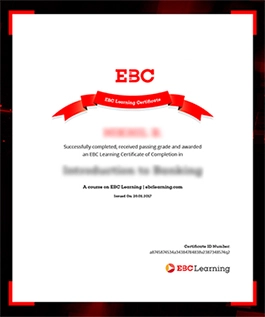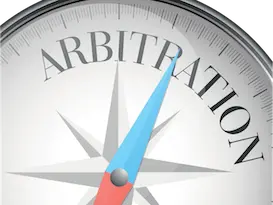Arbitration Step-by-Step
Enrollment is Closed
Arbitration in India is governed by The Arbitration and Conciliation Act, 1996 and its amendment in 2015. The course focuses on the Arbitration Act and its amendment and mainly deals with domestic arbitration.
This course focuses on various aspects and procedure for arbitration. It discusses the procedure to enter into an arbitration agreement, how to initiate arbitration proceedings, appoint an arbitrator, enforce an arbitration award, and how to appeal against an award.
Course Details
- Level - Intermediate
- Total no. of videos - 70
- Total no. of assignments - 34

When will mankind be convinced and agree to settle their difficulties by arbitration?
Benjamin Franklin- 1. Introduction
- 1.1 Welcome
- 1.2 Why take this course and prerequisites
- 1.3 Supplements
- 2. Introducing arbitration law
- 2.1 What is arbitration?
- 2.2 Limiting the need for judicial intervention
- 2.3 Choosing the correct kind of ADR
- 2.4 Deciding if the dispute can be referred to arbitration
- 2.5 Referring particular disputes to arbitration
- 3. The arbitration agreement
- 3.1 Understanding the concept of an arbitration agreement
- 3.2 Negotiating an arbitration agreement
- 3.3 Drafting an arbitration agreement
- 3.4 Paying stamp duty and registration
- 3.5 Enforcing an arbitration agreement
- 3.6 Doctrine of severability
- 4. Invoking arbitration
- 4.1 Invoking arbitration with a notice
- 4.2 Determining the arbitration proceedings’ commencement date
- 4.3 Calculating the limitation period
- 4.4 Replying to a notice invoking arbitration
- 4.5 Parties to the arbitration proceedings
- 5. Filing or dealing with objections to arbitration
- 5.1 Objecting to a suit filed in the civil court when there is an arbitration agreement
- 5.2 Court’s refusal to enforce the arbitration agreement
- 5.3 Applying for anti-arbitration injunctions
- 5.4 Judicial intervention through writ petitions?
- 6. Determining the procedure for arbitration proceedings
- 6.1 Understanding agreeable procedures
- 6.2 Choosing between institutional and ad hoc arbitration procedure
- 6.3 Determining procedure where it’s not decided
- 6.4 Speeding up arbitration proceedings - fast track procedure
- 6.5 Challenging irregular procedure in conducting arbitration
- 7. Determining the Arbitral Tribunal
- 7.1 Appointing an arbitrator named in the arbitration agreement
- 7.2 Approaching the court to appoint an arbitrator and limitation period
- 7.3 Extent of court’s power to appoint the arbitral tribunal
- 7.4 Substituting a named arbitrator who is unwilling or unable to accept
- 7.5 Agreeing on the composition of the Arbitral Tribunal after invocation of arbitration
- 7.6 Objecting to agreement while agreeing on composition
- 7.7 Requesting an arbitrator to disclose any grounds which may make it impossible for him to perform his functions
- 8. An arbitrator’s fee
- 8.1 Fixing an arbitrator's fees, costs or charges
- 8.2 Dealing with non-payment of fees
- 9. Removing or substituting an arbitrator
- 9.1 Removing an arbitrator from his post
- 9.2 Following the procedure for removal
- 9.3 Substituting an arbitrator during the pendency of arbitration proceedings
- 10. Jurisdiction of Arbitral Tribunal and courts
- 10.1 Applying to the Arbitral Tribunal to determine its jurisdiction or competence-competence
- 10.2 Deciding the venue, place or seat of arbitration
- 10.3 Deciding which court in which territorial jurisdiction to approach
- 11. Proceedings
- 11.1 Attending a preliminary meeting
- 11.2 Draft Procedural Order
- 11.3 Filing pleadings in arbitration proceedings
- 11.4 Producing evidence before the Arbitral Tribunal
- 11.5 Expecting certain conduct from an Arbitral Tribunal
- 12. Interim reliefs
- 12.1 Applying for interim reliefs before the court
- 12.2 Framing your prayer for interim reliefs
- 12.3 Deciding whether to apply to the court or the arbitrator
- 12.4 Section 17 had no teeth
- 13. The arbitral award
- 13.1 Understanding an arbitral award
- 13.2 Knowing the procedure for a valid award
- 13.3 Applying for an award of interest
- 13.4 Awarding cost in arbitration
- 13.5 Correcting mistakes in an arbitral award
- 13.6 Difficulty in correcting an arbitrator’s award
- 14. Enforcement and execution of an arbitral award
- 14.1 Finality and enforceability of an award
- 14.2 Enforcing and executing a domestic award
- 15. Termination
- 15.1 Terminating proceedings
- 16. Appeals and challenges
- 16.1 Appealing against certain orders
- 16.2 Understanding the grounds of challenge to an award
- 16.3 Challenging an arbitral award
- 17. Conclusion
- 17.1 To conclude
WHY TAKE THIS COURSE?
This course is designed to guide you through every step of the arbitration process. Often as a practising advocate or an entrepreneur, you may come across situations where your options may not be clear. Failing to make the correct choice or failing to exercise an option at the correct stage could jeopardise your case. As an advocate, this could ruin your relationship with your client. And as an entrepreneur, you could incur heavy losses. Mallika Taly through her extensive experience in arbitration proceedings guides you through the different stages in an arbitration proceeding and makes you aware of your options at each stage.
In the course you will learn to:
- Examine the arbitration agreement and the procedure for drafting and negotiating the agreement
- List and describe the procedure or stages for invoking an arbitration agreement
- Describe the procedure for arbitration proceedings
- Understand how to determine and appoint the Arbitral Tribunal
- Examine the process for appointment and removal of an arbitrator
- Understand the procedure for application of interim relief
- Interpret and enforce an arbitral award
- Understand the procedure for termination of arbitration proceedings
- Examine how to apply for an appeal in purview of arbitration proceedings
PREREQUISITES
You can take this course, if:
- You are a recent law graduate or graduating from law school
- You have a basic understanding of legal practice and procedure
- You have interned with a litigating lawyer and have a clear understanding of litigation in courts
- You are an entrepreneur and would like to know your options at the different stages of an arbitration proceeding.
Instructors

Mallika Taly
Mallika Taly is an advocate practicing in the Bombay High Court. For almost the last decade, she has been a litigator and has been working with arbitration matters. She have also been teaching law for the last several years and has published several books on arbitration with Eastern Book Company.

I can imagine no society which does not embody some method of arbitration.
Herbert ReadCertificate
Complete this course and exercises to earn a certificate. Share it with your friends, colleagues, and employers.*
*You must Subscribe to get a certificate.

Limit Reached or Trial Expired
You have reached the limit of 2 audit enrollments or your trial period has expired.


